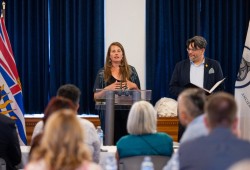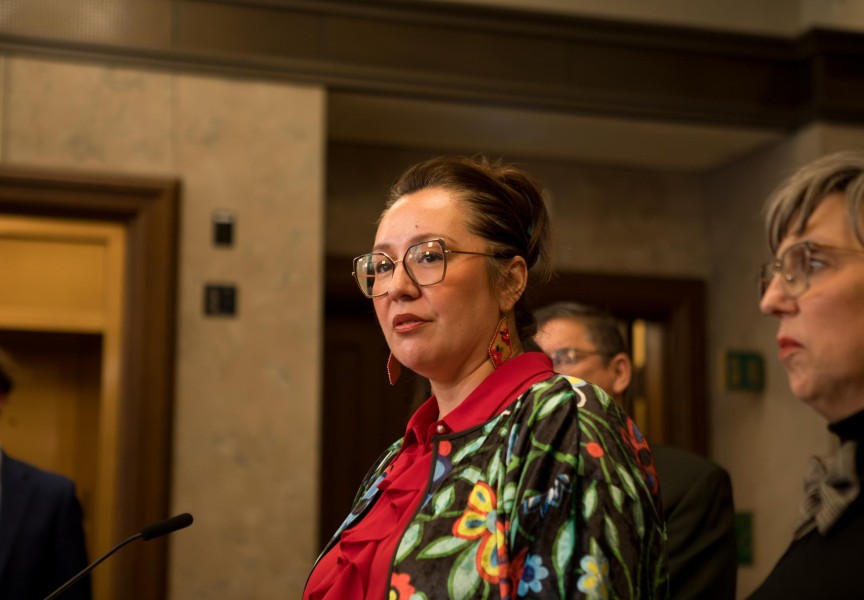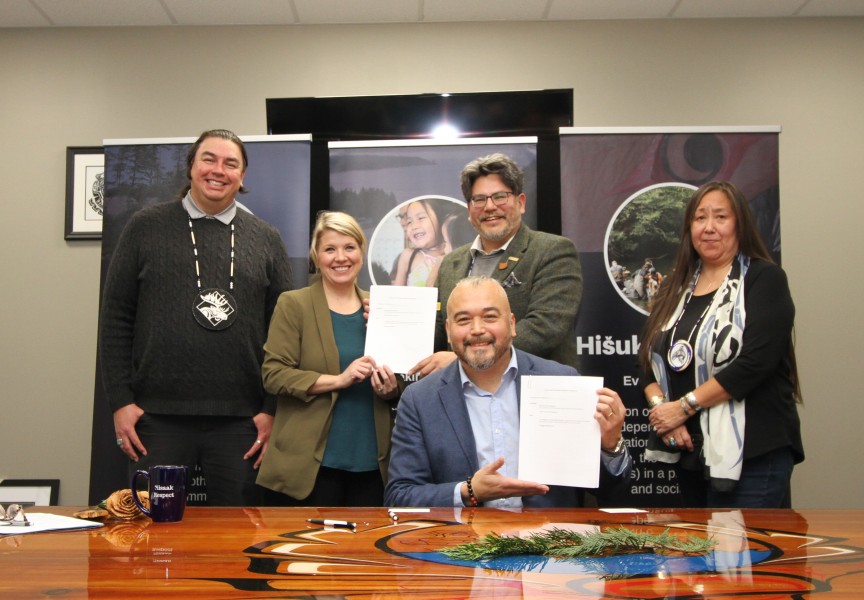One year after the harrowing Don’t Look Away report exposed catastrophic failings in B.C.’s child welfare system, the provincial government is highlighting the first phase of its response: a coordinated, cross-ministerial strategy to overhaul how services for children and families are delivered.
The original report, released in July 2024 by the Representative for Children and Youth (RCY), centered on the abuse and deaths of children while they were in government care. The report called for transformational changes to prevent similar tragedies, and focused on the case of Colby, an 11-year-old First Nations boy who died in 2021 while under ministry care. His death resulted to two extended family members each being sentenced to 16 years for manslaughter and aggravated assault.
“Every child in our province deserves safety, belonging, and love, and we must do better,” said Jodie Wickens, minister of Children and Family Development, in a press release issued July 15. “We are working with all our partners toward a renewed model of child well-being that focuses on prevention, care, and supporting families before they find themselves in crisis.”
According to the province, a new Child and Youth Well-being Action Plan is in development. It will serve as a foundational framework for aligning services across ministries, measuring outcomes, and prioritizing early intervention for vulnerable children. The government also reports it has acted on 65 per cent of the RCY’s tracked recommendations, including key steps in oversight, funding, and Indigenous jurisdiction.
When asked directly what changes are being proposed, and whether they could have prevented the deaths that prompted the report, Ministry of Children and Family Development spokesperson Corinna Filion emphasized the government’s focus on long-term structural change.
“The death of a child is an unimaginable tragedy,” Filion said. “That’s why we’re focusing on real, systemic change to better support kids and families.”
She noted that the ministry has expanded its workforce by hundreds of direct-service staff in the past two years, despite a provincewide hiring freeze. More than 81 per cent of the ministry’s $2.44 billion annual budget now goes directly to programs and services.
The ministry is also working to improve internal tracking, such as ensuring children in care are seen by a worker at least once every 90 days, and is boosting support for kinship caregivers. These changes, Filion said, are “only one part of a much broader shift.”
A key commitment in this broader shift is focused on reconciliation and Indigenous self-determination. The province has now signed 12 agreements with First Nations reclaiming jurisdiction over their own child and family services, with more to come. In a notable move, B.C. also appointed its first Indigenous Child Welfare director, tasked specifically with addressing the overrepresentation of Aboriginal children in care.
Christine Boyle, minister of Indigenous Relations and Reconciliation, reinforced this commitment.
“We hear these calls to action and are committed to continue advancing self-determination so that Indigenous children in B.C. are not only safe, supported, and loved, but remain connected to their communities, families, culture, and language,” she said.
In addition to child protection reforms, other ministries are stepping in with complementary strategies. The Ministry of Health is expanding Foundry Centres and Integrated Child and Youth Teams to provide early mental health and addiction support for young people. The Ministry of Social Development and Poverty Reduction introduced a new benefit exemption, allowing families on assistance to retain the full amount of the federal Canada Disability Benefit.
“These services are vital to help young people get back on their feet while our government continues to build a full continuum of mental health and addictions care for everyone,” said Health Minister Josie Osborne.
The RCY has acknowledged the government’s progress, but cautioned that systemic transformation will take time and sustained effort. Minister Wickens agreed, stating, “We are proud of the progress to date, but we know this is just the start and there is much more to do.”
As the province moves forward, both government leaders and community advocates will be watching closely to see whether the promises of change result in meaningful improvements.








